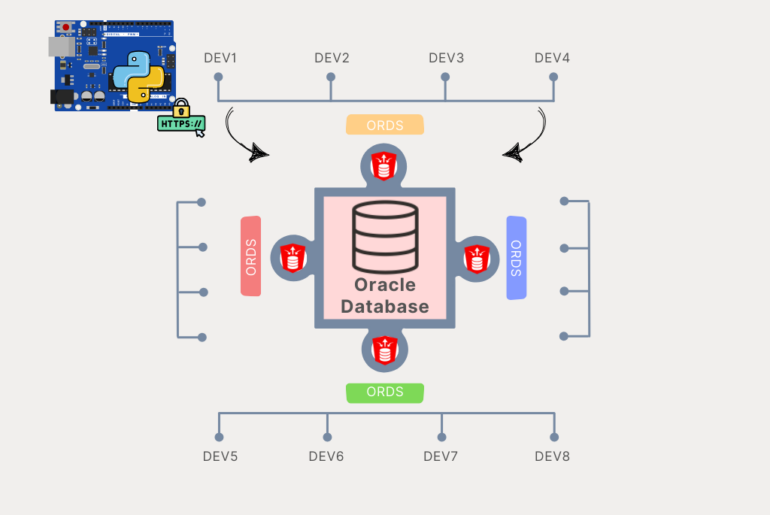It’s all in the P_SOURCE_TYPE!
I got an internal question this morning:
We have a service that is returning an empty JSON response vs a 404 when someone tries to pull up a record that does not exist.
It took me about 30 seconds to remember what might be going on. And I JUST talked about this concept a few weeks ago – ORDS AND SOURCE TYPES.
When you create your GET Handler, most folks will go with the default SOURCE TYPE of ‘Collection Query’ or ‘json/collection’. Using the default might give you something that ‘works,’ but not something that works well for every scenario.
If I use a Collection Query for just a single item in my collection, say an EMPLOYEE that belongs to EMPLOYEES/ – then the SOURCE TYPE has a few big ramifications.
ORDS.DEFINE_TEMPLATE( p_module_name => 'emps', p_pattern => 'employee/:id', p_priority => 0, p_etag_type => 'HASH', p_etag_query => NULL, p_comments => NULL); ORDS.DEFINE_HANDLER( p_module_name => 'emps', p_pattern => 'employee/:id', p_method => 'GET', p_source_type => 'json/collection', p_items_per_page => 0, p_mimes_allowed => '', p_comments => NULL, p_source => 'select * from employees where employee_id = :id' );
Setting it to ‘json/collection’ means that if our query returns Zero rows, our response will look like this:
{
"items": [],
"hasMore": false,
"limit": 0,
"offset": 0,
"count": 0,
"links": [
{
"rel": "self",
"href": "http://localhost:8080/ords/hr/emp/employee/1"
},
{
"rel": "describedby",
"href": "http://localhost:8080/ords/hr/metadata-catalog/emp/employee/item"
}
]
}It’s an empty {JSON} document. You’ll also notice that there’s information there for the offset and count…which means we’re taking your source query and wrapping it with a cursor/analytic function to get the paging to work – totally not needed when you’re dealing with a single record vs 25, 250, 2500, or more.
We don’t want this. We don’t want a collection at all, we want a collection item. And if that item doesn’t exist, we want a 404.

To achieve this only required a single line to be changed in our definition of the service:
p_source_type => 'json/item',
In summary, pay attention to your SOURCE TYPEs!








2 Comments
Hi Jeff,
I have a related question: Perhaps asked a lot before…
Is it actually a “json standard” or an Oracle ORDS implementation (standard) that a GETALL collection Query returns which gets no results, that is returns a status 200 OK with a empty collection respons like { “items”: [],….}?
Why doesn’t is return 404 NOT FOUND with no respons, like a specific get would?
Regards, Marcel
I think it’s our standard, say you ask for employees…it’s not that the collection doesn’t exist, it’s that it’s empty..poking around in our internal doc I see..
“OracleRESTStandard says “If the collection is empty, then it must return an empty collection””